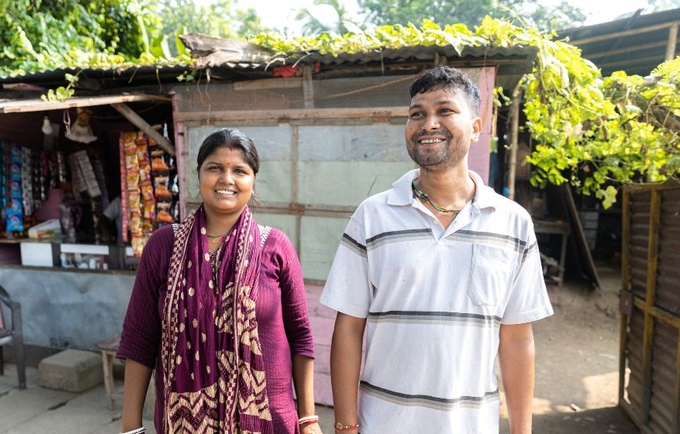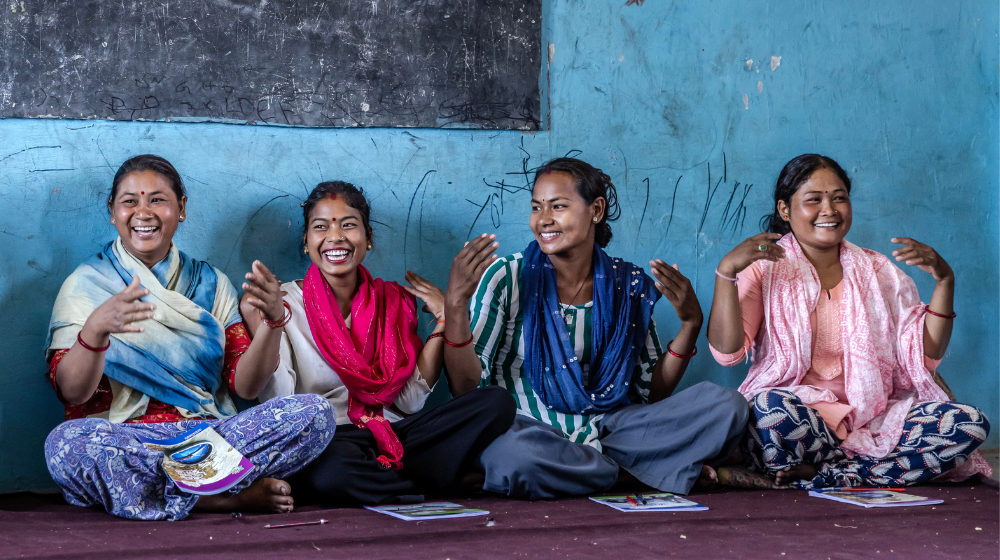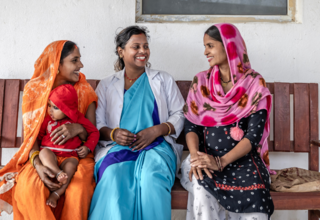Amrita Thakur lives with her husband and two children, along with their extended family in Biratnagar, in the east of Nepal. Her life was constrained by traditional gender roles where she was expected to portray unquestionable obedience to requests made by her husband.
“My husband Suraj Thakur never informed me about his whereabouts, so usually I would be just waiting for him late into the night. I couldn't eat or sleep because cultural practices dictate that I shouldn't eat before him, ” said Amrita.
Kamala, from Accham in Far-Western Nepal faced similar struggles in her married life – although from the opposite corner of the country.
Kamala and Amrita were both burdened by financial hardships and their husbands’ volatile anger, drunken rages and relentless abuse. It had become difficult for them to maintain their physical and mental health.
Then, the women came across the UNFPA-led Couples’ Dialogues supported by the Royal Norwegian Embassy in Kathmandu and the Swiss Agency for Development Cooperation in Nepal. The sessions offered a platform for them to discuss the roots of their struggles, recognizing how unchecked anger and a lack of communication had damaged their relationships.
Kamala found new courage and shared the issues that came with their financial burden and her husband’s outburst. Her husband realized the despair he had caused her, and resolved to strive for better. He reduced his alcohol consumption and sought to share household responsibilities and engage in open communication with his wife. The physical and verbal abuse also gradually subsided, replaced by a sense of shared responsibility for their family's well-being.
For the Thakurs, the impact of this session has been profound. It created a safe space, allowing them to meet and interact with other couples from the community. Suraj began to include Amrita in key decisions regarding the household and also his woodwork business. He also started doing more household chores. This transformed the dynamics of their relationship, creating a better family environment for all of them, and setting an example for their two children.
“These days when my husband is running late, he calls and urges me to eat. Also, he shares the housework responsibilities and has started consulting me in decisions regarding our family, work, and other matters,” Amrita says.
Their journeys, woven together by these sessions, portray a great example of how couples dialogue can be effective to address deep-rooted discriminatory gender norms that could lead to incidences of gender-based violence. These sessions delve into the root of the issue, thereby fostering healthy communication, mutual respect, and collaborative decision-making within families.
These sessions heal the chasms caused by pervasive gender based violence and harmful practices widely prevalent in societies. The dialogues bring a change and bring empathy and understanding in a couples’ relationship, nurturing it. These sessions foster open communication and challenge the harmful norms – therefore posing as an essential tool to bring transformation by fighting gender-based violence and paving a way for families to flourish free from gender-based violence.
Reflecting on the sessions, Amrita says, “Violence is never ok and is never the answer although people have issues. Through these sessions, while I learned so much, I am particularly glad that I now have a network of friends (other couples) who I can lean on when things get tough - and this is the same for my husband too.”




